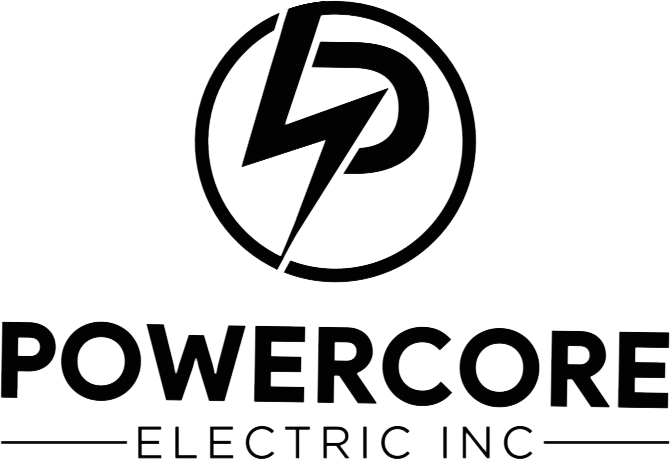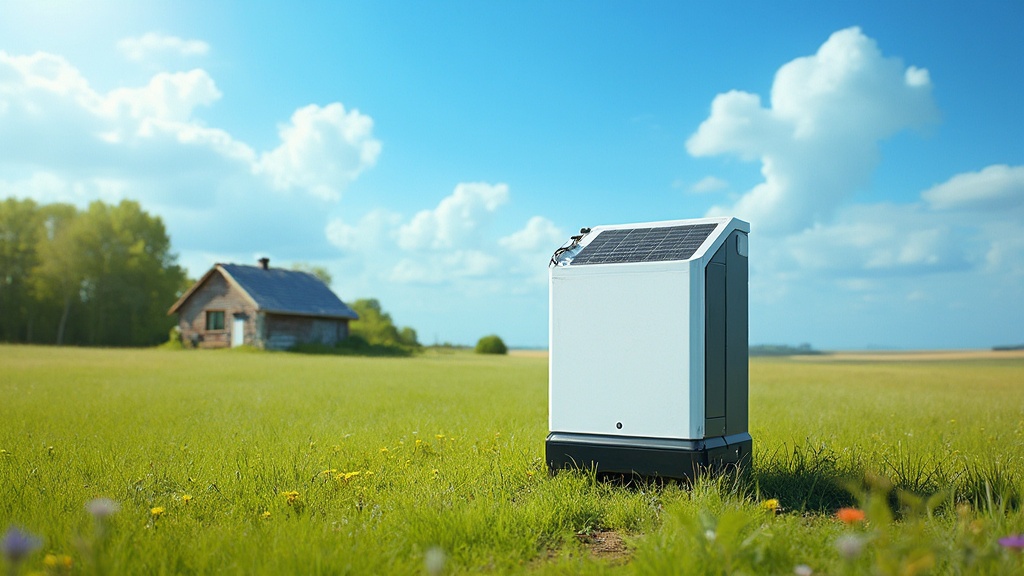Introduction
In a world where power outages can disrupt daily life, solar generators emerge as a beacon of reliability for homeowners seeking independence and sustainability. These innovative devices harness the sun’s energy, providing a clean, renewable power source that not only keeps essential appliances running but also contributes to a greener planet.
As more people explore eco-friendly solutions, understanding how solar generators work and their benefits becomes essential. From powering refrigerators to lighting up homes during blackouts, these versatile systems offer peace of mind and energy independence.
This article delves into the ins and outs of solar generators, exploring their functionality, the advantages they bring during outages, and key considerations for choosing the right system for any household. Whether you’re a seasoned solar enthusiast or just beginning your journey into renewable energy, there’s valuable insight waiting to be uncovered.
Understanding Solar Generators: Definition and Functionality
A renewable energy device is akin to a reliable companion in your household, consistently prepared to supply energy when you require it the most. This portable power system serves as a solar generator for house power outage by capturing sunlight and transforming it into electricity, making it an eco-friendly solution for homeowners during unexpected power outages. At its core, a generator powered by sunlight consists of photovoltaic panels, a charge controller, and a battery storage system.
The energy panels absorb sunlight, transforming it into electricity, which is stored in the battery for later use. So, when the lights go out, you can use a solar generator for house power outage to tap into this stored power and keep your essential appliances running smoothly, ensuring that your home remains comfortable and safe. Unlike conventional generators that consume fossil fuels, a solar generator for house power outage utilizes a clean, renewable resource that not only lowers your carbon footprint but also promotes sustainability in your community.
It’s a win-win for you and the planet!
For Long Beach renters exploring photovoltaic options, it’s important to consider additional resources like Tesla home chargers and various government programs that can facilitate access to renewable solutions. With Powercore Electric’s premier residential panel installation services available across Northern California, homeowners can benefit from expert guidance in harnessing these sustainable power solutions. Moreover, integrating battery storage solutions into your system not only guarantees you can optimize your independence in power but also allows for the use of a solar generator for house power outage, improves efficiency, and permits the use of renewable resources even when the sun isn’t shining.
While the renewable energy sector faces challenges such as labor availability and interconnection delays, forecasts indicate a promising surge in installations, projected to reach 574 GW by 2024. This expected growth highlights the importance of sunlight-based systems, particularly a solar generator for house power outage, and holistic power solutions in today’s market, making them a vital consideration for eco-conscious homeowners. To learn more about how you can benefit from solar power and to get your free quote, contact Powercore Electric today!
The Benefits of Solar Generators for Power Outages: Reliability and Independence
Homeowners, especially environmentally conscious renters in Long Beach, find that a solar generator for house power outage is an excellent option for dependable power during outages. They provide both energy independence and peace of mind, ensuring you can keep essential appliances like refrigerators, lights, and heating systems running smoothly. In regions susceptible to regular outages, investing in a solar generator for house power outage can significantly decrease your reliance on the grid.
With the latest advancements in sunlight technology, some concentrator cells now achieve efficiencies as high as 46%, illustrating the reliability of modern solutions. Renowned professor Sarah Kurtz from the University of California, Merced, highlights how high-quality photovoltaic cells are crucial for enhancing system performance. Companies such as Blue Raven Solar are committed to assisting homeowners customize their energy systems to address specific requirements, including readiness for extreme weather conditions.
When considering battery options, it’s important to evaluate specific products such as:
- Tesla Powerwall
- LG Chem RESU
- Sonnen Eco
These are known for their efficiency and storage capacity. The Tesla Powerwall, for example, provides a storage capacity of 13.5 kWh and can be combined with photovoltaic panels for optimal performance. Pricing for these batteries can vary significantly, with costs typically ranging from $7,000 to $15,000, depending on capacity and installation requirements.
Furthermore, different governmental initiatives and incentives are available to support renters and homeowners in adopting renewable solutions, which can help reduce the initial investment.
While it’s essential to acknowledge that photovoltaic panels can be affected by partial shading, choosing panels designed to withstand shading and employing power optimizers or microinverters can help mitigate these challenges. Ultimately, sunlight-powered devices not only encourage autonomy but also demand little upkeep, making them a wise and reliable option for sustainable living in your community.
Key Considerations for Using Solar Generators: Energy Needs and Sunlight Evaluation
When selecting the appropriate solar generator for house power outage, it’s essential to comprehend your power requirements, the sunlight accessible in your region, and the best battery options for efficient power storage. Solar panels convert sunlight into electricity through photovoltaic cells, which is then stored in batteries for later use. With the average household’s electricity use rising by 4% to 7% each year, accurately assessing your power consumption is more crucial than ever.
Start by calculating the total wattage of the appliances you plan to power during an outage with a solar generator for house power outage. For example:
- A toaster oven consumes about 0.75 kWh per hour, costing around $0.11.
- A waffle iron for four servings uses 0.33 kWh at a cost of approximately $0.05 per use.
These insights offer a clear understanding of your energy usage and assist in deciding the suitable size and capacity for your energy system.
Furthermore, consider your geographical location—areas with abundant sunshine will benefit more from a solar generator for house power outage, making such generators a practical choice for eco-conscious homeowners in sunny regions like Long Beach. As highlighted by Kelly and Knottenbelt, the UK-DALE dataset is a valuable resource that records power drawn by individual appliances and overall household consumption, aiding in your planning. If you live in a region with fewer sunlight hours, you may require a more powerful system or a solar generator for house power outage to satisfy your power requirements.
When selecting batteries, consider options such as:
- Lithium-ion
- Lead-acid
- Flow batteries
Each with distinct specifications and economic benefits, including longer lifespans and better efficiency. Reviewing case studies on energy-efficient appliances, such as ENERGY STAR-qualified laundry machines, reinforces the importance of choosing energy-efficient options. By taking these aspects into account, you’ll be well-prepared to select a power source that suits your way of living, power needs, and dedication to sustainability.
What Appliances Can Be Powered by Solar Generators?
Photovoltaic systems serve as a solar generator for house power outage, being exceptionally adaptable and capable of supplying energy to various crucial household devices during interruptions, thus establishing them as an essential part of any renewable energy setup. Imagine keeping your refrigerator operational, illuminating your space with lights, and charging your laptop— all of which can be powered by a solar generator for house power outage during an electricity failure. A typical refrigerator requires between 100 and 800 watts to operate, while energy-efficient LED lights only need about 10 to 20 watts each.
An electric heater consumes 1.5 kWh per hour, costing about $0.23 compared to a toaster, which uses just 0.04 kWh at a cost of less than $0.01. Understanding the wattage requirements of your appliances is crucial for effective planning. To maximize the benefits of your energy generator, create a list of the devices you want to power, ensuring they align with the generator’s output capacity.
This practical strategy enhances your comfort and convenience at home during outages by using a solar generator for house power outage. Moreover, incorporating a high-quality battery, like the Tesla Powerwall or the LG Chem RESU, can greatly enhance storage efficiency. These batteries enable you to store surplus power generated during the day for use at night or during outages.
Additionally, understanding how photovoltaic panels convert sunlight into electricity and how this energy is stored in batteries can provide a more comprehensive view of your energy system. With the appropriate panel system and battery combination, homeowners can anticipate a payback period of only 5-6 years, making it a financially wise investment for sustainable living.
Can Solar Generators Work Off-Grid? Debunking Common Myths
Many eco-aware homeowners frequently ponder if sunlight-powered devices can genuinely function effectively off-grid, a query frequently linked with misconceptions. For example, it’s widely thought that photovoltaic systems can’t supply sufficient energy for long durations. However, the reality is that with the right capacity and a proper panel arrangement, these devices can keep your home powered for several days, depending on your energy usage and the amount of sunlight available.
Another misunderstanding is that sunlight-powered devices are only efficient in bright weather. While they do perform best under direct sunlight, advancements in technology have enabled energy systems to operate efficiently even in less-than-ideal conditions. Moreover, photovoltaic generators provide substantial advantages, including:
- Savings on utility expenses
- Decreased dependence on fossil fuels
- A smaller carbon footprint
This renders them an eco-friendly option.
Furthermore, homeowners can improve their systems with Tesla home chargers, which enable effective charging of electric vehicles utilizing renewable resources. Government initiatives also offer incentives for embracing renewable power solutions, making it more attainable for homeowners. Just as Texas has significantly increased its wind capacity—sextupled from 2007 to 2020—demonstrating the potential for renewable sources to enhance grid stability, photovoltaic systems can also contribute to dependable off-grid solutions.
Today, Texas produces approximately one-fifth of its total electricity from wind power, demonstrating the reliability of renewable power sources. Moreover, a case study on European winter power requirements suggests that managing renewable resources, including photovoltaic systems, is less difficult than previously believed. By clearing up these myths and highlighting the benefits and available solutions, you can gain a better understanding of the potential of a solar generator for house power outage, making it a fantastic choice for those looking to embrace sustainable energy.
Conclusion
Solar generators represent a transformative solution for homeowners seeking energy independence and sustainability, particularly during unexpected power outages. By harnessing the sun’s energy, these systems provide a reliable power source that keeps essential appliances running, ensuring comfort and safety at home. With a combination of solar panels, battery storage, and advanced technology, solar generators not only reduce reliance on traditional power grids but also contribute to a cleaner environment.
The versatility of solar generators is evident in their ability to power various household appliances, from refrigerators to lights, making them an invaluable asset for any eco-conscious homeowner. Understanding energy needs and the available sunlight in your area is crucial when selecting the right system, as it allows for tailored solutions that meet individual requirements. Furthermore, advancements in solar technology continue to enhance efficiency and reliability, making solar generators a viable option even in less-than-ideal conditions.
As myths surrounding solar generators are debunked, it becomes clear that these systems offer significant benefits, including cost savings and a reduced carbon footprint. With support from government programs and the growing availability of solar energy solutions, adopting solar generators is more accessible than ever. Embracing this renewable energy source not only empowers homeowners with energy independence but also fosters a collective effort towards a more sustainable future.


